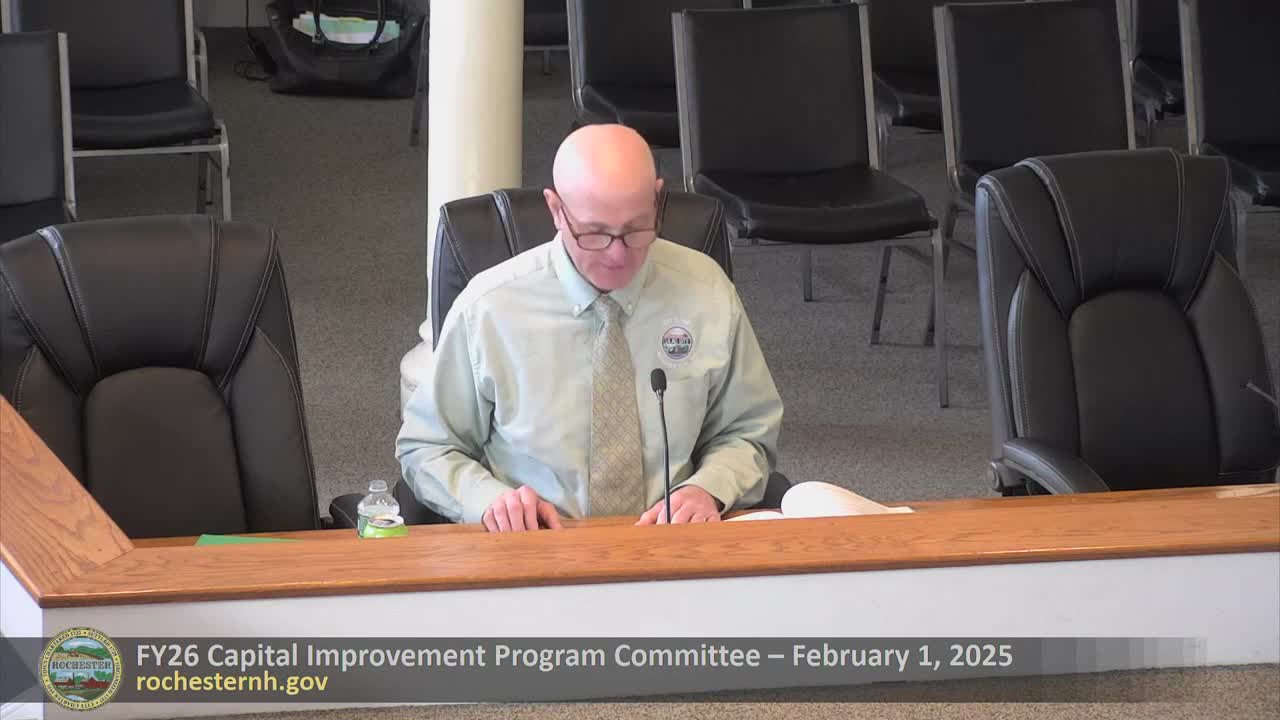Committee debates lead-and-copper readiness funding; pauses decision pending regulatory clarity
Get AI-powered insights, summaries, and transcripts
Subscribe
Summary
Committee members questioned a contingency cash appropriation for potential lead/service-line replacements after staff described evolving federal rules and uncertain responsibilities for mobile-home parks and private-side services. The committee voted to defer definitive funding until staff can clarify policy and funding options.
The Public Works Committee paused a proposed FY26 contingency appropriation intended to respond to forthcoming revisions of the EPA’s Lead and Copper Rule.
Public Works staff explained the request as a precaution: "These rules are about a thousand pages...we just want to be ready," the Public Works Director said, noting that the city had previously replaced known galvanized services and submitted an inventory to the state. The presenter added, "If regulation comes back and says that the city's responsible, then do we have the option of charging them for stuff that's done on private properties?" and stressed that the regulatory picture — including whether the city is expected to replace private-side services in mobile-home parks or condominiums — remains unresolved.
Committee members pressed staff on funding mechanics and legal authority. One member raised concerns about using city funds on private property and the potential need for police or legal authority to access private yards; another said a supplemental appropriation would be appropriate if regulators ultimately require the city to act. The committee ultimately moved to delay final action on the contingency and recommended staff return with clarification. The motion on this item was characterized in the meeting as a recommendation to push the funding to the next fiscal year while staff refines the policy approach.
Why it matters: the city's options — pay up front with cash and recoup via homeowner repayment, bond the work, or require property owners to pay — carry different rate, legal and equity consequences. Staff said some federal or state grant sources may be available and that the city attorney had advised the municipality could use public funds for public-system replacements, but the regulator (EPA implemented by DES in the state) has been changing guidance on whether certain private-side services fall to the public utility.
Next steps: staff will report back with recommended funding mechanisms, clarification from the state primacy agency, and guidance from the city attorney about authority to enter private property and cost-recovery options.
